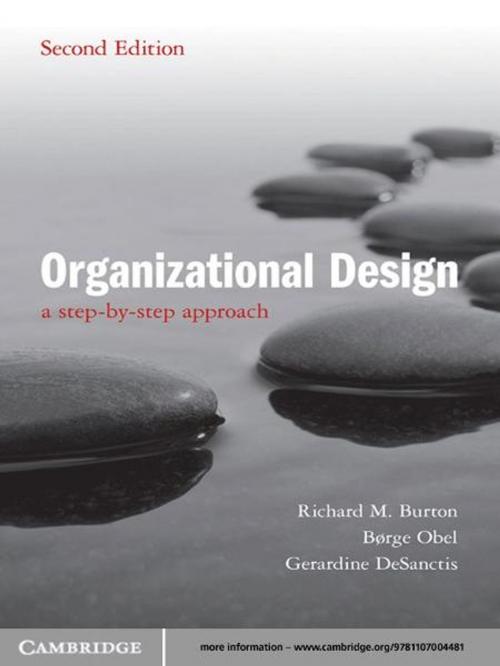Organizational Design
A Step-by-Step Approach
Business & Finance, Human Resources & Personnel Management, Organizational Behavior| Author: | Richard M. Burton, Børge Obel, Gerardine DeSanctis | ISBN: | 9781139097567 |
| Publisher: | Cambridge University Press | Publication: | August 4, 2011 |
| Imprint: | Cambridge University Press | Language: | English |
| Author: | Richard M. Burton, Børge Obel, Gerardine DeSanctis |
| ISBN: | 9781139097567 |
| Publisher: | Cambridge University Press |
| Publication: | August 4, 2011 |
| Imprint: | Cambridge University Press |
| Language: | English |
In today's volatile business environment, it is more important than ever that managers, whether of a global multinational or a small team, should understand the fundamentals of organizational design. Written specifically for executives and executive MBA students, the edition of this successful book provides a step-by-step 'how to' guide for designing an organization. It features comprehensive coverage of the key aspects of organizational design, including goals, strategy, process, people, coordination, control and incentives. These aspects are explained through the use of a unique series of 2 x 2 graphs that provide an integrated, spatial way to assess and plan organizational design. The new edition features a number of important improvements, including a new framework for understanding leadership and organizational climate, the introduction of the concept of manoeuvrability and a completely new chapter examining joint ventures, mergers, partnerships and strategic alliances.
In today's volatile business environment, it is more important than ever that managers, whether of a global multinational or a small team, should understand the fundamentals of organizational design. Written specifically for executives and executive MBA students, the edition of this successful book provides a step-by-step 'how to' guide for designing an organization. It features comprehensive coverage of the key aspects of organizational design, including goals, strategy, process, people, coordination, control and incentives. These aspects are explained through the use of a unique series of 2 x 2 graphs that provide an integrated, spatial way to assess and plan organizational design. The new edition features a number of important improvements, including a new framework for understanding leadership and organizational climate, the introduction of the concept of manoeuvrability and a completely new chapter examining joint ventures, mergers, partnerships and strategic alliances.















